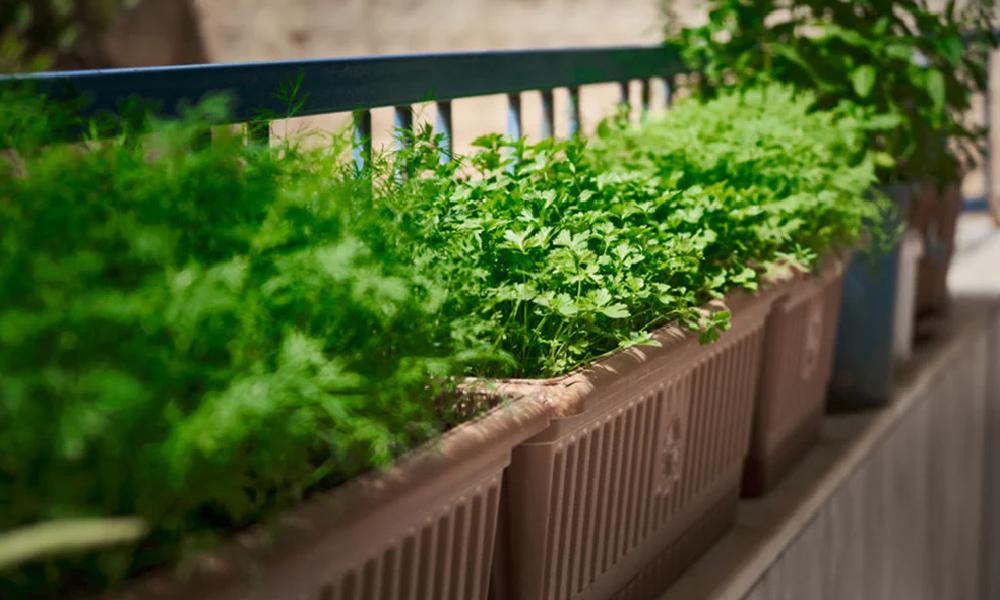Introduction
The world of medicine is vast and ever-evolving, with researchers and healthcare professionals constantly exploring new ways to promote health and well-being. In recent times, there has been a growing interest in natural remedies and holistic approaches to health, and one area that has gained significant attention is the use of medical plants for various ailments and health conditions. Having medicinal plants at home can be a great way to complement conventional medical treatments and promote overall well-being. In this article, we will explore the top 10 medical plants for your home that you can grow and utilize to enhance your health naturally.
1. Aloe Vera (Aloe barbadensis miller)
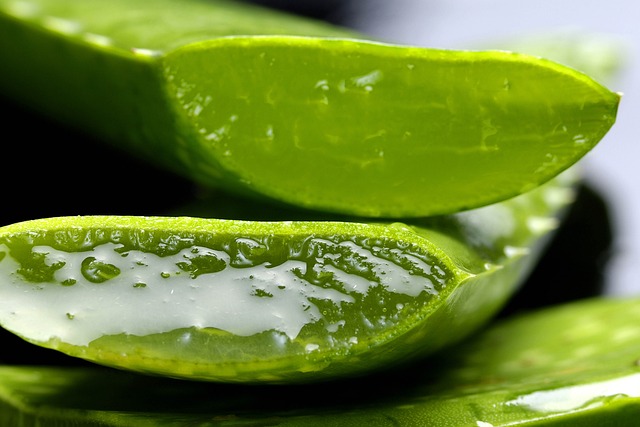
Aloe Vera is a well-known succulent that has been used for centuries for its medicinal properties. The gel-like substance found inside its thick, fleshy leaves is rich in vitamins, minerals, and antioxidants, making it an excellent natural remedy for various skin issues. Aloe Vera gel is renowned for its ability to soothe and heal burns, cuts, and minor skin irritations. Its anti-inflammatory properties can also provide relief for skin conditions such as eczema and psoriasis, promoting skin health and recovery.
2. Peppermint (Mentha piperita)
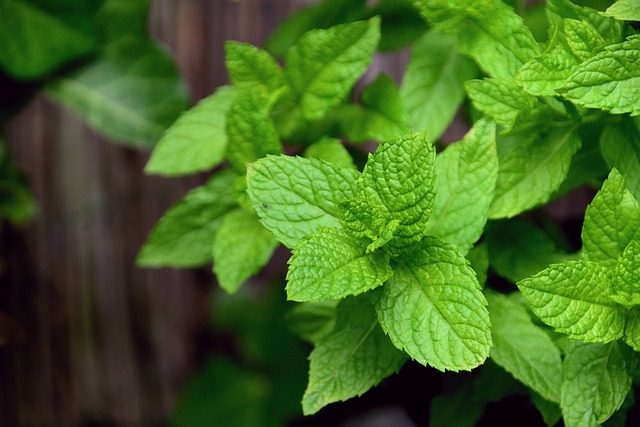
Peppermint is not just a flavorful herb used in cooking; it also offers numerous health benefits. The active compound in peppermint, menthol, has a calming effect on the digestive system, can effectively alleviate indigestion, and soothe an upset stomach. Peppermint tea is a popular remedy for digestive discomfort and bloating. Moreover, the refreshing aroma of peppermint can help reduce stress and ease headaches, making it a valuable herb to have at home, whether you reside in Oragadam Township or elsewhere.
3. Lavender (Lavandula)
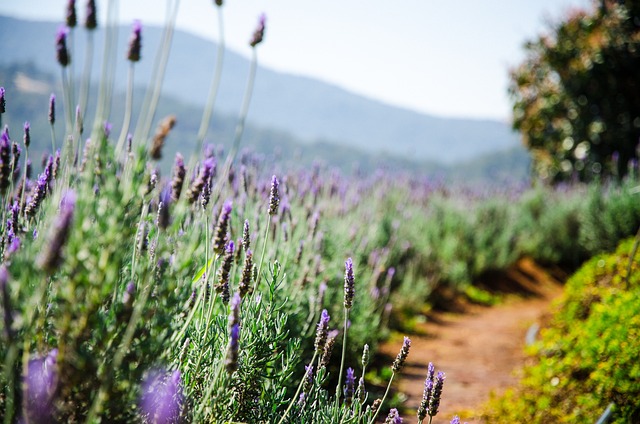
Lavender is a beautiful flowering plant known for its enchanting fragrance and therapeutic properties. The essential oil derived from lavender flowers is commonly used in aromatherapy to promote relaxation and reduce anxiety and stress. Lavender’s calming effects on the mind and body make it an excellent natural remedy for improving sleep quality and alleviating mild depression. Additionally, lavender oil can be applied topically to help soothe skin irritations and minor burns.
4. Chamomile (Matricaria chamomilla)
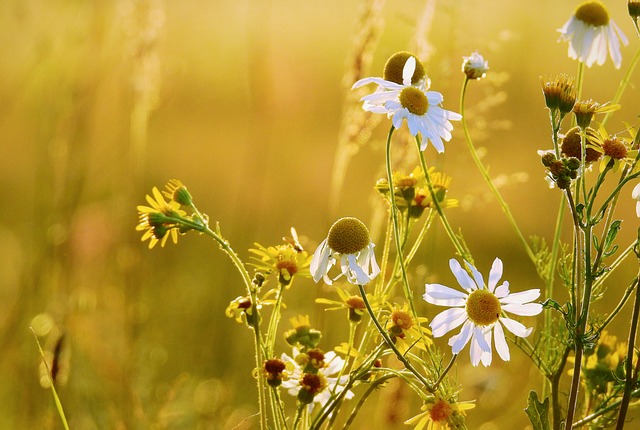
Chamomile is another wonderful herb that is widely recognized for its calming and soothing properties. Often consumed as a tea, chamomile can help ease insomnia and promote better sleep. Its gentle sedative effects can also aid in reducing stress and anxiety, making it a great natural remedy for relaxation. Chamomile tea can be used topically to help with wound healing and soothe skin conditions, such as eczema and dermatitis.
5. Echinacea (Echinacea purpurea)
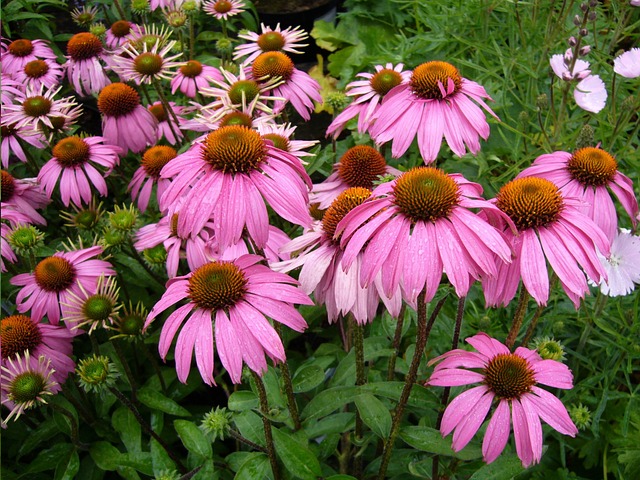
Echinacea is a powerful herb known for its immune-boosting properties. It has been used for centuries to support the body’s natural defence mechanisms and fight off infections. Echinacea extracts are widely available in various forms, including tablets, capsules, and tinctures. Regular use of Echinacea supplements can help prevent and shorten the duration of colds and flu, making it a valuable addition to your home’s natural medicine cabinet.
6. Rosemary (Rosmarinus officinalis)
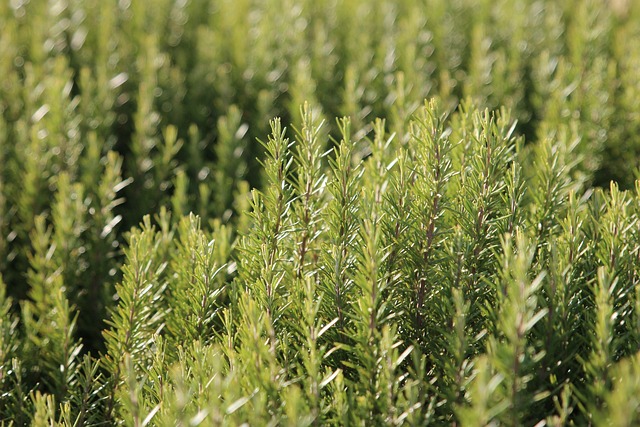
Rosemary is not just a flavorful herb that adds depth to various dishes. It also offers several health benefits. Rich in antioxidants and anti-inflammatory compounds, rosemary supports brain health and may even improve memory and cognitive function. The aroma of rosemary is believed to stimulate the brain and enhance mental clarity. Additionally, rosemary oil can be used topically to promote scalp health, stimulate hair growth, and provide relief from headaches.
7. Ginger (Zingiber officinale)
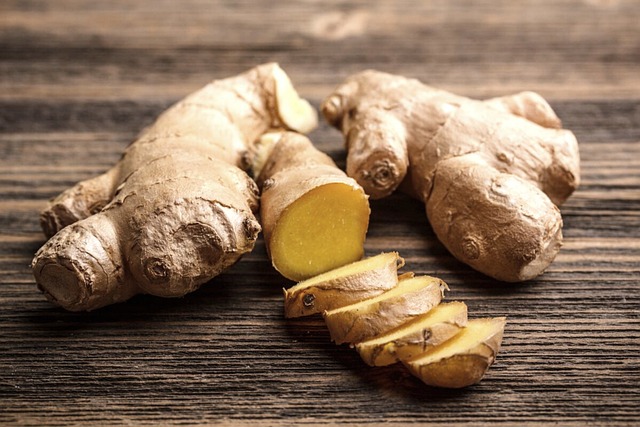
Ginger is a well-known spice used in both culinary and traditional medicine practices. It is highly regarded for its anti-nausea properties and is often recommended for pregnant women experiencing morning sickness. Ginger’s anti-inflammatory effects make it effective in reducing muscle pain and soreness. Consuming ginger tea or adding fresh ginger to meals can aid in digestion and soothe gastrointestinal discomfort.
8. Basil (Ocimum basilicum)
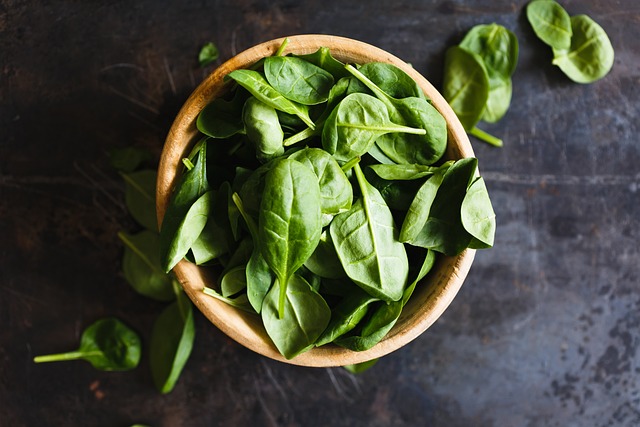
Basil is a fragrant herb that comes in various varieties, each with its unique flavour profile. This versatile herb is an excellent source of vitamins and minerals and possesses antibacterial properties. Chewing basil leaves can help alleviate bad breath while consuming basil tea can aid in digestion and promote gut health. Basil is a valuable herb to have in your kitchen garden for both culinary and medicinal purposes.
9. Thyme (Thymus vulgaris)
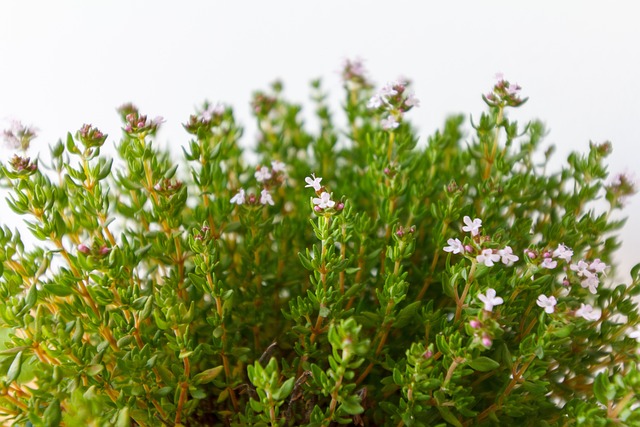
Thyme is a fragrant herb commonly used in cooking, particularly in Mediterranean cuisine. Beyond its culinary applications, thyme has impressive medicinal properties. It contains compounds with antimicrobial and antiseptic properties, making it effective in fighting respiratory infections and sore throats. Thyme tea can help relieve cough and congestion and support respiratory health.
10. Calendula (Calendula officinalis)
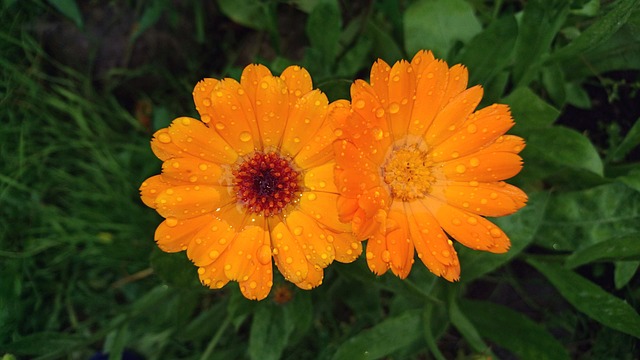
Calendula, also known as marigold, is a vibrant and cheerful flower that offers potent anti-inflammatory and wound-healing properties. It can be applied topically to soothe skin irritations, including minor cuts, burns, and insect bites. Calendula’s gentle and soothing nature makes it suitable for sensitive skin, and its healing properties make it a valuable addition to your natural first-aid kit at home.
Conclusion
Integrating these top 10 medical plants into your home can provide a natural and holistic approach to health and well-being. Each of these plants offers unique medicinal properties, ranging from soothing skin irritations and promoting digestion to boosting the immune system and enhancing relaxation. While these plants can complement conventional medical treatments, it’s essential to remember that they should not replace professional medical advice or treatments.
Frequently Asked Questions
1. Can these medical plants replace conventional medicine?
While these plants have valuable health benefits, they should not be used as substitutes for professional medical advice or treatments. Always consult a healthcare provider for any medical concerns.
2. How can I grow these medical plants at home?
Most of these plants are easy to grow in containers or small garden spaces. They require proper sunlight, water, and care to thrive.
3. Are there any side effects of using these plants?
When used appropriately, these plants usually have minimal side effects. However, some individuals may be allergic to certain plants, so it’s essential to use them with caution.
4. Can pregnant women use these medical plants?
Pregnant women should consult their healthcare providers before using any medicinal plant to ensure they are safe during pregnancy.
5. Where can I purchase these medical plants or their products?
You can find these plants at nurseries, gardening stores, and even some supermarkets. Their products, such as essential oils and teas, are available in health stores and online retailers.

